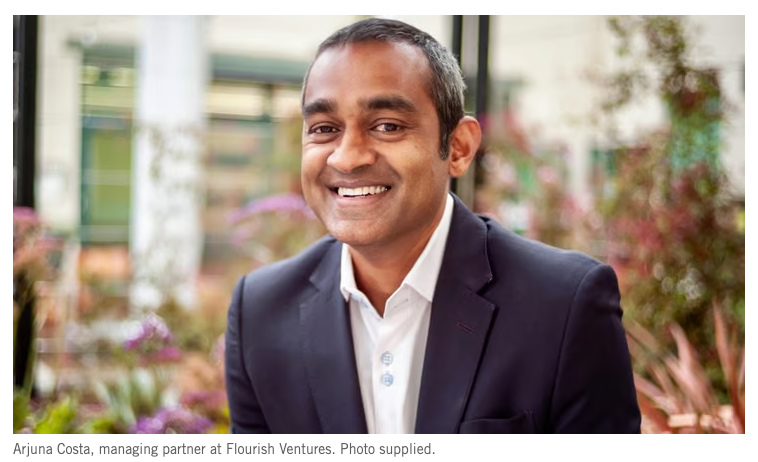By David Whitehouse
Flourish Ventures, which invested in Nigerian unicorn Flutterwave in its first seed round in 2017, will be seeking to unearth new unicorns as it deploys $350m in fresh capital, managing director Arjuna Costa tells The Africa Report.
Originally posted on The Africa Report
San Francisco-based Flourish Ventures is unique among early-stage investors in that its funding comes from the family office of eBay founder Pierre Omidyar, with Flourish having discretion over how the money is invested. 13 of Flourish's current 71 investments are in Africa, and the firm also invests in India, Southeast Asia, Latin America and the US.
Omidyar's aim, Costa says, is to make investments that have a systemic impact through improving global financial infrastructure. The firm retains a stake in Flutterwave, which now has an overall valuation of $3bn on the basis of its Series D fundraising in February.
African investments by Flourish are focused on Nigeria, Kenya, South Africa and Egypt, and include Egyptian fintech Flash, Nigerian small business lender Lidya and the Honeycoin Blockchain platform.
Flourish is now working on deploying its new capital and has investment prospects in the pipeline in Nigeria and South Africa, as well as among global companies serving African markets, Costa says. He hopes to conclude some of those investments in the next two months.
Diversification across continents, Costa says, provides a natural hedge against the risk of African currency weakness. There's no target geographical allocation for Africa, but Costa sees no reason to think that the continent will be de-emphasised in the fund's future investments. "We're looking for the smartest entrepreneurs," he says. "The innovation is coming out of all geographies."
Unlike most venture capital funds, Flourish is not time-bound and can afford to be patient with its holdings. Still, companies need to achieve profitability at scale, Costa says. "We back entrepreneurs who can demonstrate the viability of new ideas."
Venture capital funding in Africa has slowed down this year, declining by 43% in the first six months amid a global funding slowdown, according to the African Private Capital Association (APCA).
Seed-stage deals assumed greater significance, attracting over 70% of African venture funding in both quarters. Financials were the leading sector, accounting for 46% of investments by value in the second quarter, followed by industrials at 34%.
Costa argues that the slowdown was needed and may be beneficial in the long term. In 2020 and 2021, he argues, there were excessive expectations as to the growth rates that could be achieved by African digital start-ups. He sees a new mood of investor realism, and says the focus has moved from “scale at all costs to the unit economics" of businesses. This has "brought a bit of rationality back to the market”.
Next-generation financial infrastructure, for example in banking-as-a-service and point-of-sale payment devices, will be a key theme for the deployment of the new capital. The fact that Africa has been underserved by the financial services industry means there is more "white space" to devise new solutions, Costa says.
That reduces the need for tailwinds from African economic growth to justify new investments. "Next generation infrastructure has an opportunity to build at scale," he says.
Costa is also excited by embedded finance, or the integration of financial services into non-financial offerings, for household and small and medium-sized businesses. The key to expanding the reach of financial services in Africa, he says, is not to start with the financial product itself, but with a solution to a real-life problem, for example in supply chains.
That enables the provider to access flows of data about real-life behaviour and to start devising financial products that fit the data patterns, he adds. The firm has previously invested in the Apollo Agriculture embedded finance platform in Kenya, and Costa sees healthcare in Africa as an area where the same formula can be applied.
Venture-capital investing in Africa, Costa says, needs to break away from its usual focus on male founders who are often Western-educated, as well as looking beyond the continent's largest English-speaking markets.
A dedicated Flourish Ventures investment pool called Madica will seek to do that by investing in about 30 companies over the next three years. Madica will deploy about $6m in total and with an average ticket size of about $200,000. An initial investment in a venture with a female founder is in the pipeline.
